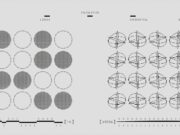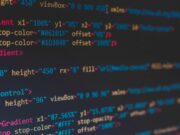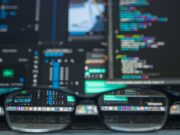What Is Objective Analysis Meaning?
Objective analysis meaning refers to evaluating facts without bias or personal opinions. It ensures decisions are based on evidence, logical reasoning, and factual data. This approach is crucial in research, decision-making, and professional fields where accuracy and fairness play a significant role.
Definition and Key Characteristics
An objective analysis is an unbiased evaluation of data, situations, or events. It involves a fact-based approach where conclusions rely on empirical evidence rather than assumptions.
Key Characteristics:
- Fact-Based – Uses measurable and verifiable data.
- Unbiased – Avoids personal influence.
- Logical – Follows structured reasoning.
- Evidence-Driven – Uses scientific analysis and real-world proof.
Objective vs. Subjective Analysis
| Feature | Objective Analysis | Subjective Analysis |
|---|---|---|
| Basis | Facts & data | Personal feelings |
| Approach | Neutral & logical | Opinion-based |
| Example | Scientific research | Personal review |
| Bias | Minimal | High |
Why Is Objective Analysis Important?
Role in Critical Thinking and Decision Making
Objective analysis meaning strengthens critical thinking. It ensures decisions are rational and well-supported. This is essential in business, law, and science. Fair judgment depends on removing cognitive bias and emotional influence.
How It Supports Data-Driven Assessments
Researchers rely on empirical evidence to validate results. Logical reasoning ensures data is accurate and reliable. Without an unbiased evaluation, conclusions may be misleading.
Reducing Cognitive Bias in Analysis
Cognitive bias leads to errors in judgment. Objective evaluation minimizes this by focusing on facts rather than assumptions. Professionals use data-driven decision making to maintain accuracy.
How to Conduct an Objective Analysis
Step-by-Step Approach to Fact-Based Analysis
- Gather factual data – Use reliable sources.
- Eliminate bias – Avoid assumptions.
- Compare multiple perspectives – Cross-check information.
- Use logical reasoning – Follow structured methods.
- Draw conclusions based on evidence – Avoid personal opinions.
Using Empirical Evidence and Logical Reasoning
Empirical evidence strengthens rational assessment. It includes measurable results from scientific analysis and case studies. Logical reasoning ensures clarity in evaluating facts.
Common Mistakes and How to Avoid Them
- Ignoring contrary evidence – Consider all available data.
- Relying on assumptions – Base conclusions on facts.
- Overlooking context – Examine full circumstances.
Applications of Objective Analysis
Objective Analysis in Research and Science
Scientists use fact-based analysis to validate hypotheses. Unbiased evaluation prevents errors in research. Data interpretation must remain neutral and precise.
Importance in Business Decision Making
Companies rely on objective analysis meaning for strategic planning. Data-driven decision making ensures accurate forecasting. Market research follows a logical approach to minimize risks.
Role in Ethical and Legal Evaluations
Courts require neutral perspectives in cases. Fair judgment is crucial in legal disputes. Ethical reviews ensure unbiased assessments in policymaking.
Challenges in Maintaining Objectivity
Overcoming Personal Bias
- Acknowledge biases – Recognize personal influences.
- Use diverse sources – Seek different viewpoints.
- Apply scientific methods – Base conclusions on verified data.
Ensuring Evidence-Based Assessment
- Verify sources – Use reliable information.
- Analyze multiple perspectives – Compare different viewpoints.
- Avoid confirmation bias – Do not favor specific results.
Tools and Techniques for Fair Judgment
- Statistical analysis – Uses data to validate claims.
- Comparative research – Cross-verifies information.
- Expert reviews – Relies on professional insights.
- Scientific methods – Ensures credibility.
Conclusion
The Future of Objective Analysis
Technology is advancing data-driven decision making. AI and machine learning are improving fact-based analysis. The demand for unbiased evaluation is growing across industries.
How to Improve Your Analytical Skills
- Enhance critical thinking – Question assumptions.
- Use logical reasoning – Follow a structured approach.
- Rely on empirical evidence – Base conclusions on facts.
Frequently Asked Questions
What is the difference between objective and subjective analysis?
Objective analysis is based on facts and evidence, while subjective analysis relies on opinions and personal perspectives.
Why is objective analysis important in research?
It ensures results are reliable, unbiased, and fact-based, preventing misleading conclusions.
How can I improve my objective analysis skills?
Focus on logical reasoning, eliminate bias, and rely on empirical evidence for decision-making.
What are some examples of objective analysis?
Scientific research, legal evaluations, and data-driven decision making in business are common examples.
By following a structured objective analysis meaning, individuals and businesses can make fair, logical, and fact-based decisions while avoiding errors caused by subjectivity and bias.























